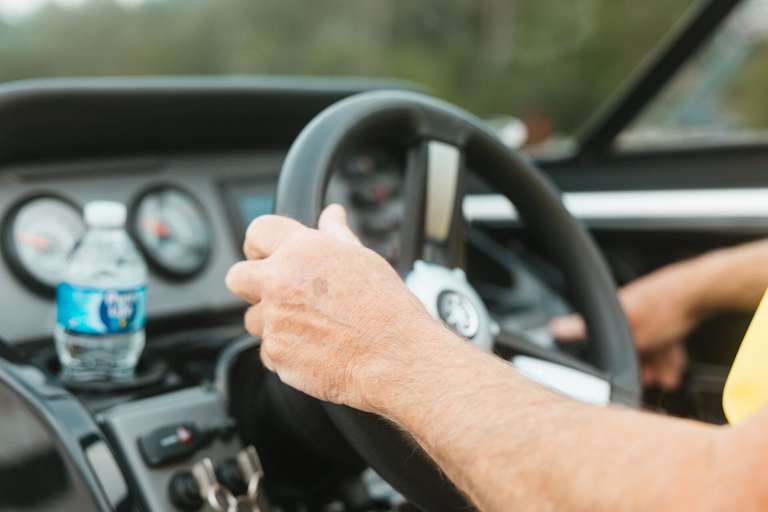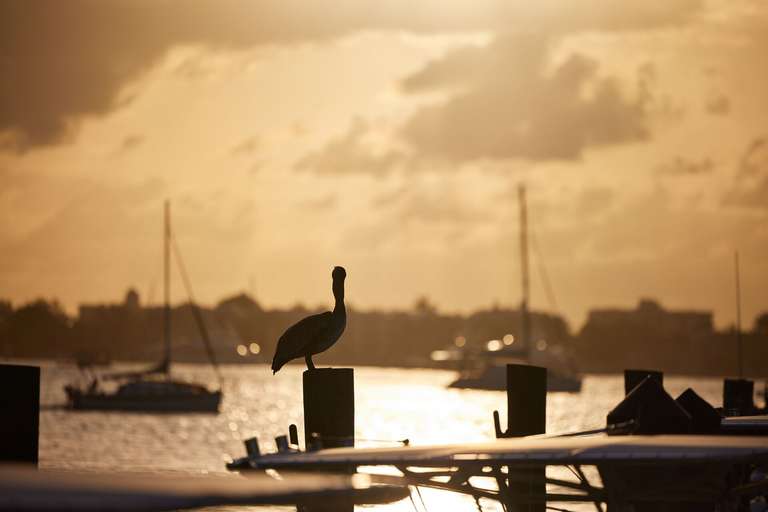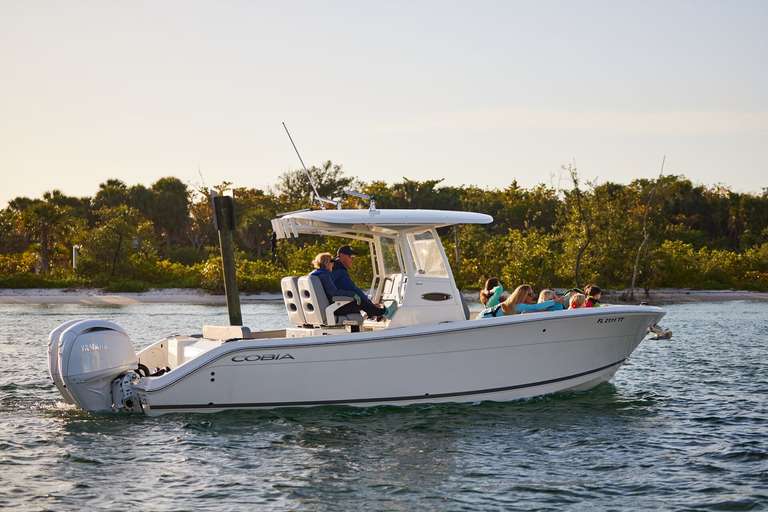10 Crucial Boating Safety Tips Everyone Should Know
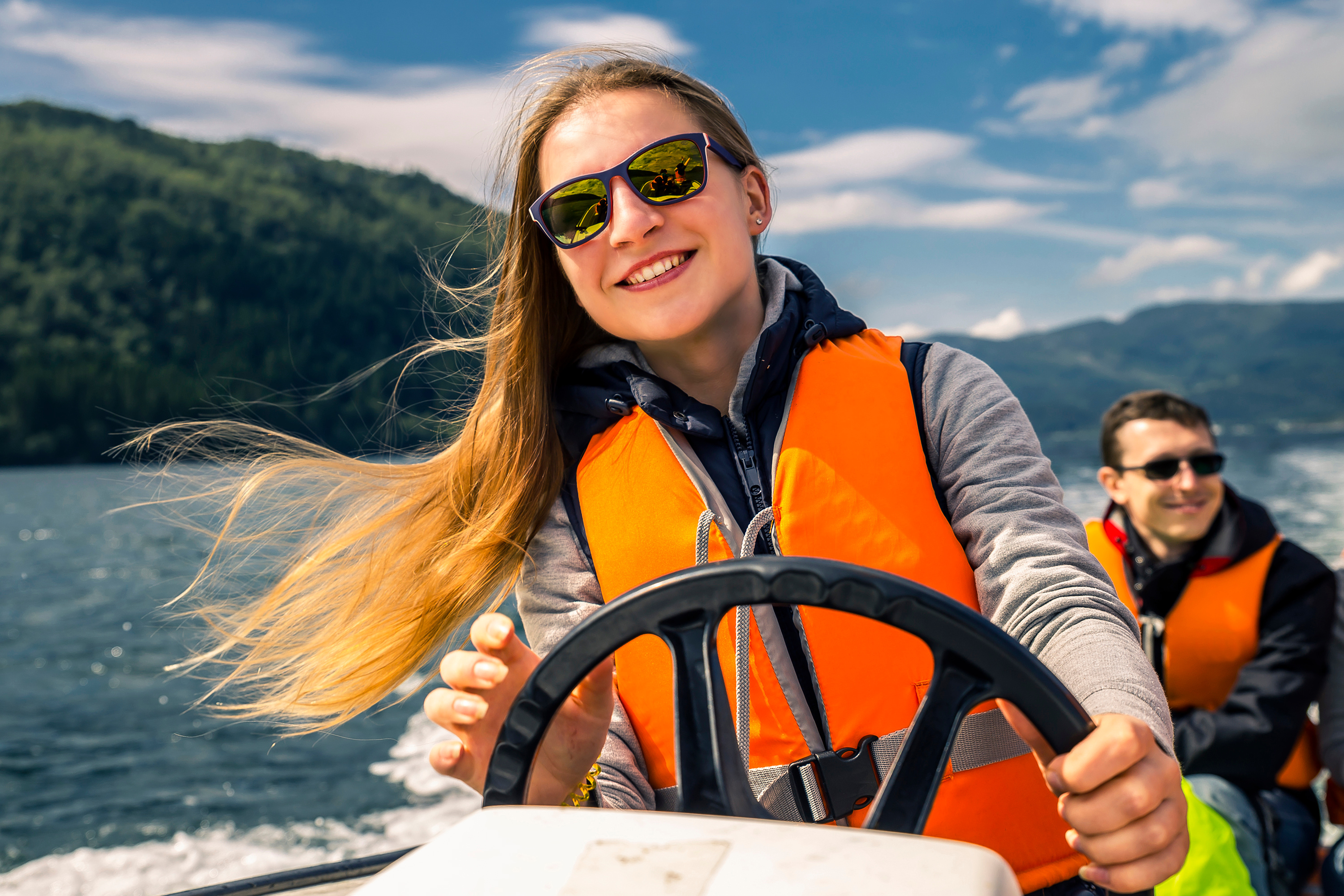
Whether you've passed a boater safety course (or not), staying safe on the water is crucial.
In their 2023 report, the U.S. Coast Guard reported 4,040 boating incidents in 2022. These accidents resulted in 636 deaths, 2,222 injuries, and about $63 million in property damage that year.
To emphasize the importance of boater safety education, the report notes that 74% of the deaths occurred on boats where operators did not have boating safety instruction. Operator inexperience was one of the top contributing factors in these boating accidents.
From this data, we can conclude that boating safety saves lives. So, before you hit the water this season, we want to help you stay safe with the knowledge you need every time you operate a boat.
Even if your state doesn't require boat owners and operators to pass a boater safety course, boater safety is everyone's responsibility when on the water. Keep reading to learn ten crucial boating safety tips to keep you safe every boating season!
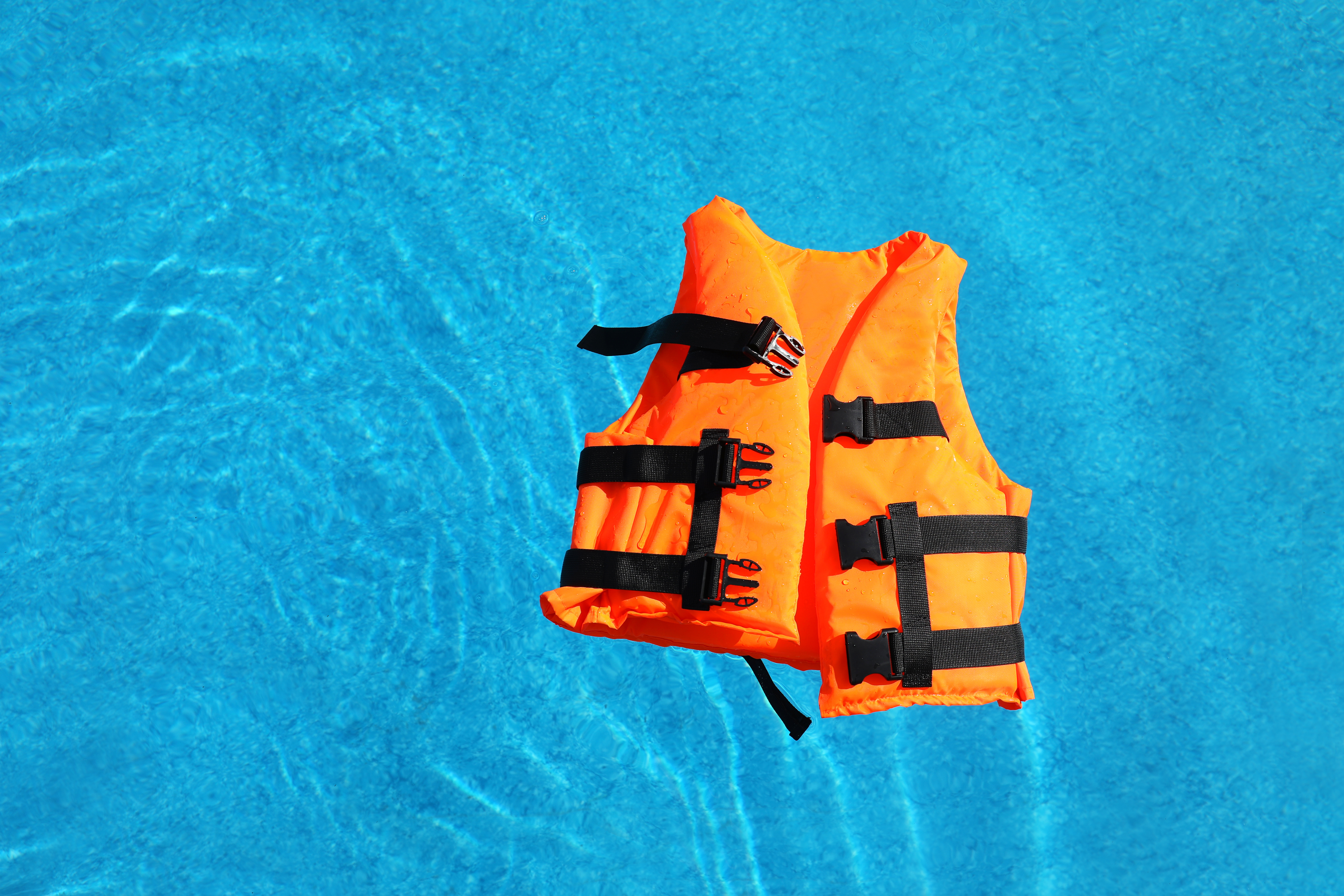
Safety Applies to Everyone (Anytime)
The National Safe Boating Council organizes National Safe Boating Week every year. The goal of this week is to "advance and promote safer recreational boating experience through education, outreach, and training."
This year, National Safe Boating Week happens May 18-24, 2024. Activities include the Wear It campaign, where boaters can pledge to wear a life jacket when boating or fishing.
However, safety extends beyond this week for anyone engaging in boating activities. Whether you've taken an ilearntoboat safety course (or you plan to take one before getting on the water), the following ten tips can help keep you safe!
10 Crucial Tips to Stay Safe On a Boat
Safety must always come first on the water. As the captain of a boat, you are responsible for safe conditions on your boat and when passing or engaging with other watercraft on the water.
1. Let Someone Know Before You Go
A float plan lets someone know the date (or dates) of your boating activities, where you plan to boat, who you're with (and their contact information), and documents the safety equipment you have on board.
Before you take off for the lake or your local marina, leave that float plan with a friend or family member – especially if you like to boat alone.
2. Share Your Knowledge
Safe boating starts on land by sharing your safety knowledge with friends and family before they come on board.
If you plan to let others operate the boat during your outing on the water, encourage them to take a boater education course from a NASBLA-approved provider (like ilearntoboat) before they get on the boat or take the helm.
3. Don't Skip a Pre-Launch Checklist
Whether you're a new boat owner or a seasoned captain, every boat trip should start with a pre-launch checklist.
It's easy to forget the little things like checking the bilge or checking that the drain plug is in, so don't rely on your memory for a cursory check of critical safety elements. Use a checklist before launching your boat whenever you take it out on the water.
4. Keep an Eye Out for Wildlife
Remember: you're just a visitor on the water. Even if you boat daily, you're a guest in the home of many animals living in or near the water.
While boating, keep an eye out for animals. Respect the environment and their habitat so it continues to be a place we can enjoy in the future.
5. Stay Alert
Chances are, you're not often the only one on the water unless you boat in remote locations. So, even if you only see one other person fishing near your favorite fishing hole, it's critical always to stay alert when operating a boat.
On a busy day at the lake, the excitement and adrenaline of having fun or waterskiing with friends can be a distraction. However, driver inattention is one of the biggest causes of boating accidents. So, while waiting for your turn on the skis, keep an eye on other boaters to keep everyone safe.
6. Maintain Safety for All Ages
Do you take your kids boating? It's often a family affair. So, it's important to make sure safety applies to everyone aboard, regardless of age.
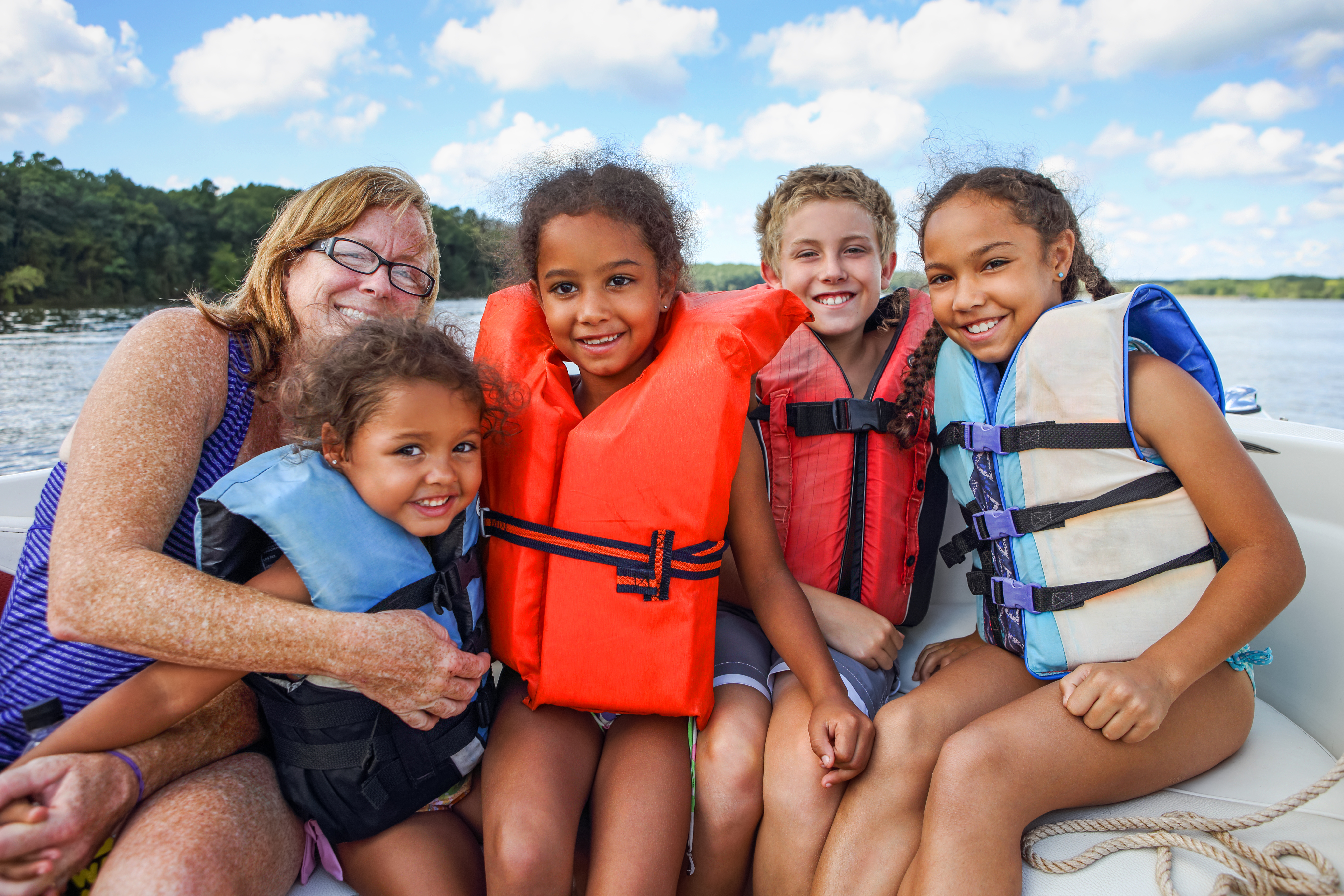
As the boat's owner or operator, you must ensure everyone on the boat understands how to stay safe on the water – and then enforce the rules of safe boating.
You can do this by setting a good example of safe practices on the boat. When others see how they should behave on the water, they're more likely to follow suit. Good safety helps everyone on the boat enjoy a day on the water.
7. Everyone Wears a Life Jacket
Whether they think it's "cool" to wear a life jacket or not, everyone on your boat should wear one while on the water.
However, depending on your activities while on the boat, make sure you have the right type of life jacket and each person has one that fits.
Some life jackets are designed for specific water activities, while others are ideal depending on how far you are from shore. Additionally, as you'll learn through your ilearntoboat safety education course, the only life jackets you can rely on are approved by the U.S. Coast Guard.
In partnership with the National Safe Boating Council, you can get high-quality life jackets before your next outdoor adventure.
Choosing not to wear a life jacket can change a life forever. So, don't let anyone second guess it! Set the example by wearing your life jacket and make sure everyone on the boat wears one, too.
8. Learn How to Stay Safe When Boating at Night
Operating a boat in the dark is vastly different than being on the water with plenty of daylight. However, a boat education course covers nighttime safety and equipment requirements for boating at night.
You may not plan to boat after dark, but you never know when you'll need the skills to help you navigate at night. With less visibility, boat operators must understand the signals to send and receive from other boats when it's dark on the water.
Play it safe, and make sure you're prepared to get caught on the water after the sun goes down.
9. Be Prepared for a Fire
A fire on a boat is a critical safety issue, and we hope it never happens while you're on a boat.
However, all boaters must be prepared to act quickly with the right equipment in the event of a fire. Without the right equipment and knowledge, your boat could quickly become a significant hazard, forcing everyone into the water to avoid burns or injuries.
A fire extinguisher is required boating equipment, but just having it on your boat isn't enough. Know how to use it!
10. Carry the Right Equipment and Tools
In addition to life jackets and fire extinguishers, your boat needs essential safety equipment every time you take it on the water. This equipment includes a radio, the right lights, docking and anchoring equipment, a distress signal, and more.
Much like a pre-launch checklist, it can be hard to remember (or locate) every piece of equipment you need before launching. So, a Safety Equipment Checklist can help you make sure your boat has everything it needs before getting out on the water.
Use Tools for Navigation
In addition to "onboard" equipment, digital tools can help you have fun and stay safe on the water
Wavve Boating is an app that includes dynamic nautical charts that automatically update for current tides and water levels. The app also includes a seven-day weather forecast, crowdsourced information, and more to help new boaters stay safe. It's an excellent tool to transition from online learning to the water.
After completing a boating education course through ilearntoboat, you can get a one-year free trial of Wavve Boating! With your safety education and Wavve, you can hit the water and stay safe every season.
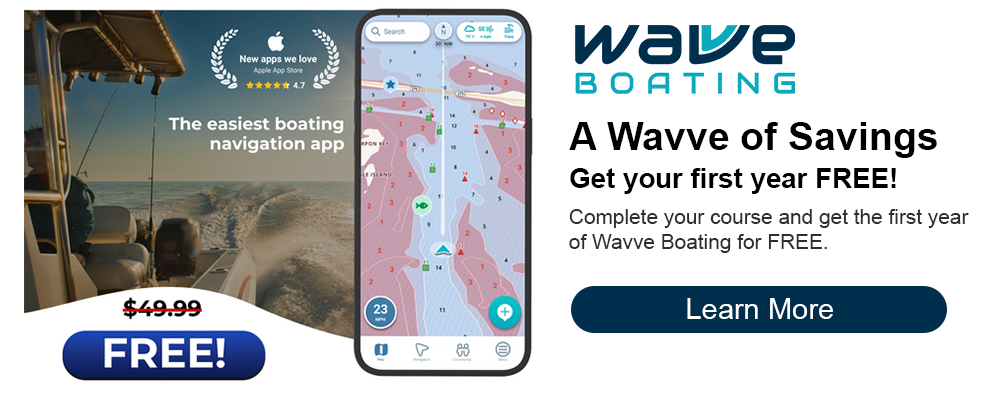
Stay Safe on the Water With ilearntoboat
With a completed safety course, you're ready to launch! Additionally, the ten safety tips we've highlighted today are critical for staying safe on the water every time you go out this season.
You can also help family and friends stay safe by recommending an online safety course before boating season begins. Find and select the state they need, then take the online course. Our courses are online, interactive, and convenient to complete from anywhere.
We hope you have a happy and safe boating season this year!

